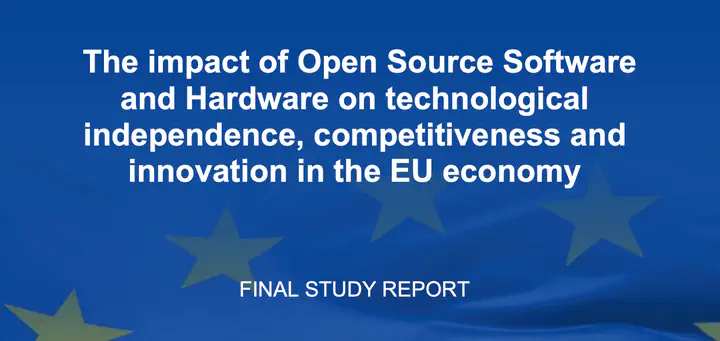The impact of open source software and hardware on technological independence, competitiveness and innovation in the EU economy
 Study report
Study reportAbstract
This study analyses the economic impact of Open Source Software (OSS) and Hardware (OSH) on the European economy. It was commissioned by the European Commission’s DG CONNECT. It is estimated that companies located in the EU invested around €1 billion in OSS in 2018, which resulted in an impact on the European economy of between €65 and €95 billion. The analysis estimates a cost-benefit ratio of above 1:4 and predicts that an increase of 10% of OSS contributions would annually generate an additional 0.4% to 0.6% GDP as well as more than 600 additional ICT start-ups in the EU. Case studies reveal that by procuring OSS instead of proprietary software, the public sector could reduce the total cost of ownership, avoid vendor lock-in and thus increase its digital autonomy. The study also contains an analysis of existing public policy actions in Europe and around the world. The scale of Europe’s institutional capacity related to OSS, however, is disproportionately smaller than the scale of the value created by OSS. The study therefore gives a number of specific public policy recommendations aimed at achieving a digitally autonomous public sector, open R&D enabling European growth and a digitised and internally competitive industry.